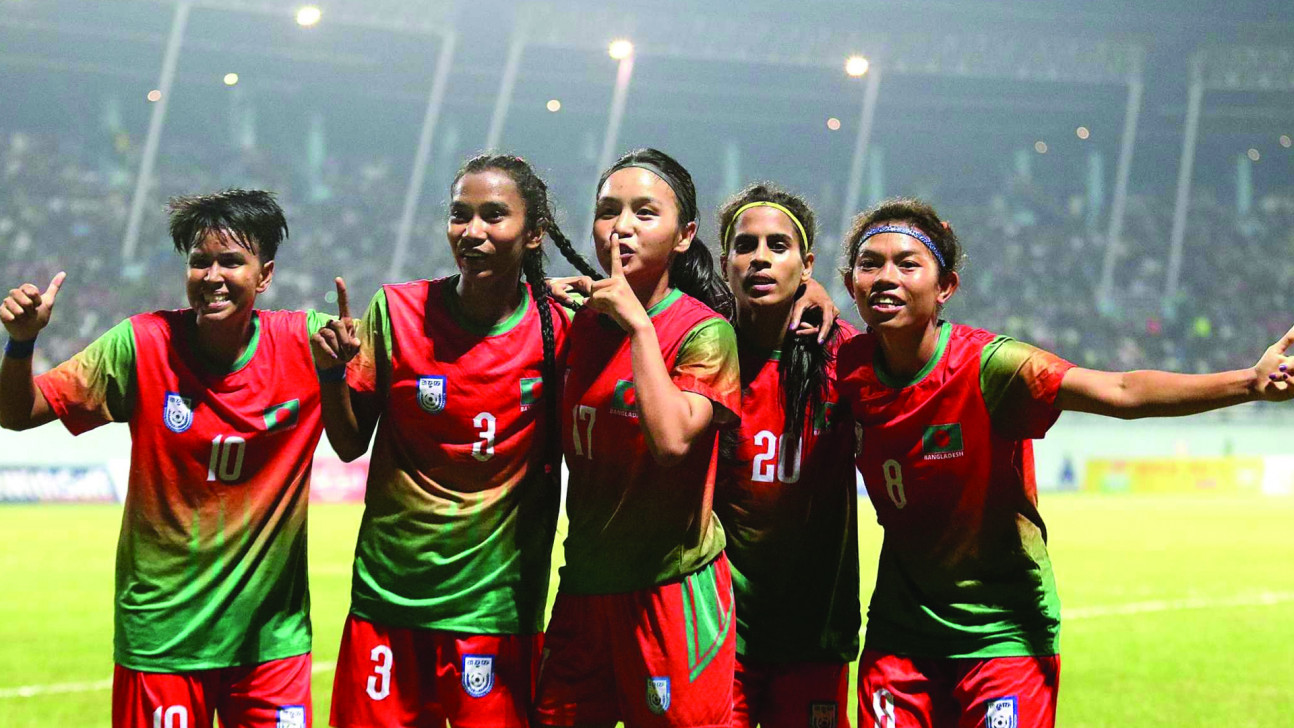How expat Bangladeshi footballers are reconnecting to their ancestral roots

Bangladesh, a nation with a long-standing passion for sports, especially football, has been experiencing a long drought in the sport for myriad reasons: poor performances on the international stage, inadequate domestic infrastructure, irregular and uncompetitive local football, absence of age-level and school competitions, lack of visionary strategies, and corruption among football officials. Gradually, even die-hard fans are losing interest, while the younger generations are more invested in European football.
However, a new ray of hope is quietly emerging, marking an immense potential for the sport in Bangladesh and offering the country a new global identity, thanks to the involvement of expatriate footballers.
The Bangladesh Football Federation (BFF) recently organised a three-day trial at the National Stadium in Dhaka, participated by 52 expatriate footballers of Bangladesh origin, aged between 14 and 27 years. This initiative forms part of BFF's broader strategy, The Next Global Star, aimed at recruiting Bangladesh-origin players who play at club or academy levels abroad. These talented individuals, trained in various football academies and professional leagues—particularly in Europe—bring not only technical ability but also a strong desire to represent the national team. Their inclusion can strengthen the bond with the vast Bangladeshi diaspora and foster a renewed sense of national pride.
For more than two decades, Bangladeshi football has remained confined to domestic competition, with no significant international success. Although local leagues retain loyal (if dwindling) followings, the international reach and competitiveness seen in other South Asian nations have largely eluded our country.
Then a new chapter began with Jamal Bhuyan, a Danish youth of Bangladeshi descent and now the national team captain, who pioneered this legacy in 2013 when he first joined the squad. While a few African footballers once expressed interest in representing Bangladesh after acquiring citizenship, they were ultimately unsuccessful.
In 2023, Norwegian defensive midfielder Tariq Kazi followed in Jamal's footsteps and joined the national team, paving the way for others. However, the most notable breakthrough came when Hamza Choudhury, the only English Premier League player of South Asian origin, cleared all FIFA protocols and arrived in Bangladesh to serve the national side. Hamza's inclusion received overwhelming attention and motivated BFF to intensify its efforts to scout more expatriate talent. Subsequent additions of Fahmidul Islam (Italy) and Shamit Shome (Canada) further energised fans and shifted media attention—albeit temporarily—from cricket to football.
Now, this new group of emerging talents—hailing from youth academies and clubs in the UK, US, Germany, Italy, France, Portugal, Australia, Sweden, the UAE, Spain, and Estonia—promise to inject fresh energy into Bangladesh football. Their polished technical skills, tactical discipline, physical conditioning, and professional experience are rare in the domestic arena. Their journeys—from life abroad back to their ancestral homeland—symbolise a profound devotion and connection to their roots.
These footballers play a significant role in uniting the global Bangladeshi diaspora. Bangladeshis living abroad make remarkable contributions to the socioeconomic and cultural life of their host countries. However, maintaining meaningful ties with Bangladesh often proves challenging. Football, as a global language and a powerful emblem of national identity, offers a unique way to bridge this gap.
The Bangladesh national football team's international tours—particularly in cities with large Bangladeshi communities such as those in the UK, US, and Middle East—transcend sport. They act as cultural touchpoints, rekindling national pride and fostering a shared identity among Bangladeshis living overseas. Second- and third-generation Bangladeshis living abroad often feel emotionally connected when they see players who share their heritage on the field. These athletes can become inspirational figures, linking global lives to Bangladeshi traditions. Their multilingualism and cultural adaptability also make them excellent ambassadors for cross-cultural engagement.
Community-based initiatives such as school visits, local tournaments, and social media campaigns can help nurture a collective sense of pride. Interactive strategies like Q&A sessions, virtual meet-and-greets, and behind-the-scenes content will make these athletes more relatable, particularly to diaspora youth.
However, for this momentum to bear fruit, the BFF and relevant stakeholders must adopt a strategic and forward-thinking approach. This includes actively identifying talent within the diaspora, simplifying the path for integration, and creating long-term engagement plans. At its core, this approach must acknowledge that the future of Bangladesh football lies not just within its borders, but in its diverse and dynamic global community.
These expatriate footballers are not merely players; they are emblems of a modern, globalised Bangladesh, driven by ambition and resilience. Beyond revitalising the sport domestically, this is an opportunity to unite the diaspora around a shared sense of pride. By embracing these players as cultural ambassadors, Bangladesh can build bridges that transcend boundaries—one kick at a time.
Md. Amjad Hossain is lecturer in the Department of Public Administration at the University of Dhaka.
Views expressed in this article are the author's own.
Follow The Daily Star Opinion on Facebook for the latest opinions, commentaries and analyses by experts and professionals. To contribute your article or letter to The Daily Star Opinion, see our guidelines for submission.



 For all latest news, follow The Daily Star's Google News channel.
For all latest news, follow The Daily Star's Google News channel. 

Comments